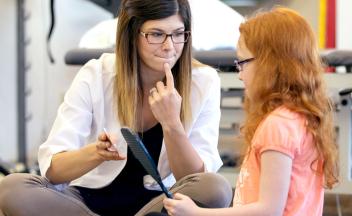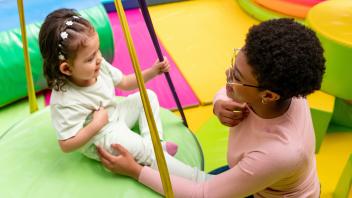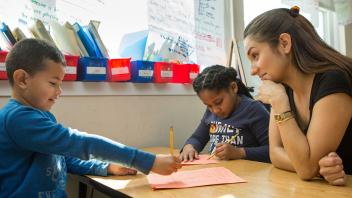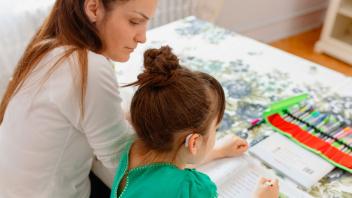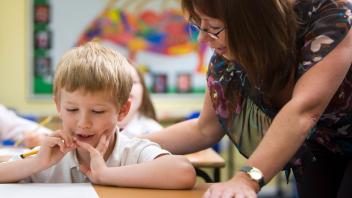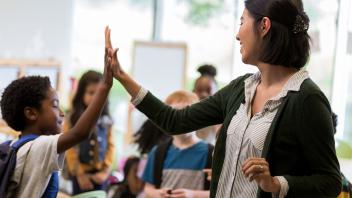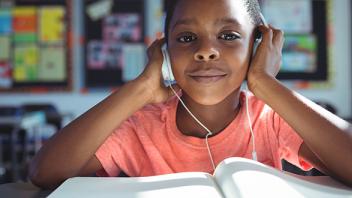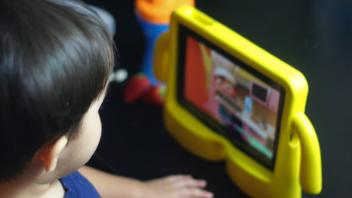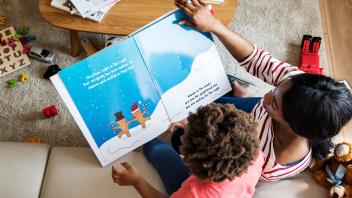Literacy is an essential prerequisite to students’ academic achievement, social wellbeing, and lifetime opportunities. Speech-language pathologists (SLPs) have the specialized knowledge and experience that’s needed to identify communication disorders and provide the help that children need to build their language literacy skills.
School SLPs help children with speech sounds, spoken language and literacy, social communication, cognitive communication, and assistive technology. SLPs play an important role in both special education and regular education settings. Here are some of the key things SLP’s do:
- Provide classroom-based services
- Co-teach with classroom teachers and reading specialists
- Work with students who are at risk for reading difficulties and with children who are experiencing academic failure
- Provide training to parents, teachers, and administrators to help support students’ academic and social success
Articles on speech, language, and hearing
Speech, Language, and Hearing
Early Identification of Speech, Language, and Hearing Disorders
Speech, Language, and Hearing
Specific Language Impairment
Speech, Language, and Hearing
Effects of Hearing Loss on Development
Speech, Language, and Hearing
What Are Central Auditory Processing Problems in Children?
Speech, Language, and Hearing
Speech and Language Services in Schools
English Language Learners
Learning More Than One Language
Assistive Technology
Universal Design for Learning: Meeting the Needs of All Students
Modeling read-alouds for parents
Speech-language pathologist Dr. Julie Washington says that most important thing about read-alouds with very young children is offering positive, joyful experiences around reading. (From our webcast, From Babbling to Books)
Dialect, language variation, and learning to read
We need to value and respect every child’s home language, not suppress it. If we are quick to “correct” examples of language varieties in speaking and writing — our students will become afraid to read.
Dr. Julie Washington
Dr. Julie Washington teaches us how to take full advantage of our students’ oral language “repertoire” to become skilled fluent readers. As a speech-language pathologist, researcher, and fellow at the University of California in Irvine, her work focuses on the intersection of literacy, language variation, and poverty in African American children from preschool through fifth grades. She explains how to bridge African American English to print — a critical skill for reading, writing, and spelling. Watch and learn how to take what you already know about teaching reading and adapt it so it works for everybody. This video is one of the timely talks from our sister project, Reading Universe .
Especially for parents
Early Literacy Development
Activities to Encourage Speech and Language Development
Ed Tech and Digital Media
Creating a Healthy Technology Environment for Your Child (Birth to Five)
Developmental Milestones
Does My Preschooler Have Delayed Development?
Speech, Language, and Hearing
Healthy Hearing
Speech, Language, and Hearing
What To Expect: Your Child’s Communication Development, Birth to Five
Speech, Language, and Hearing
Reading Together: Tips for Parents of Children with Speech and Language Problems
Resources from the American Speech-Language-Hearing Association (ASHA)
For more information, see the ASHA Back-to-School Digital Toolkit . The toolkit includes the helpful resources and videos shown below.
- How We Help: SLPs in Your Child’s School
- Getting Help Flow Chart: Speech and Language Treatment in Schools
- Finding Help for Your Child’s Speech and Language at School
Thank you to our longtime partner, ASHA, for sharing these helpful resources!
